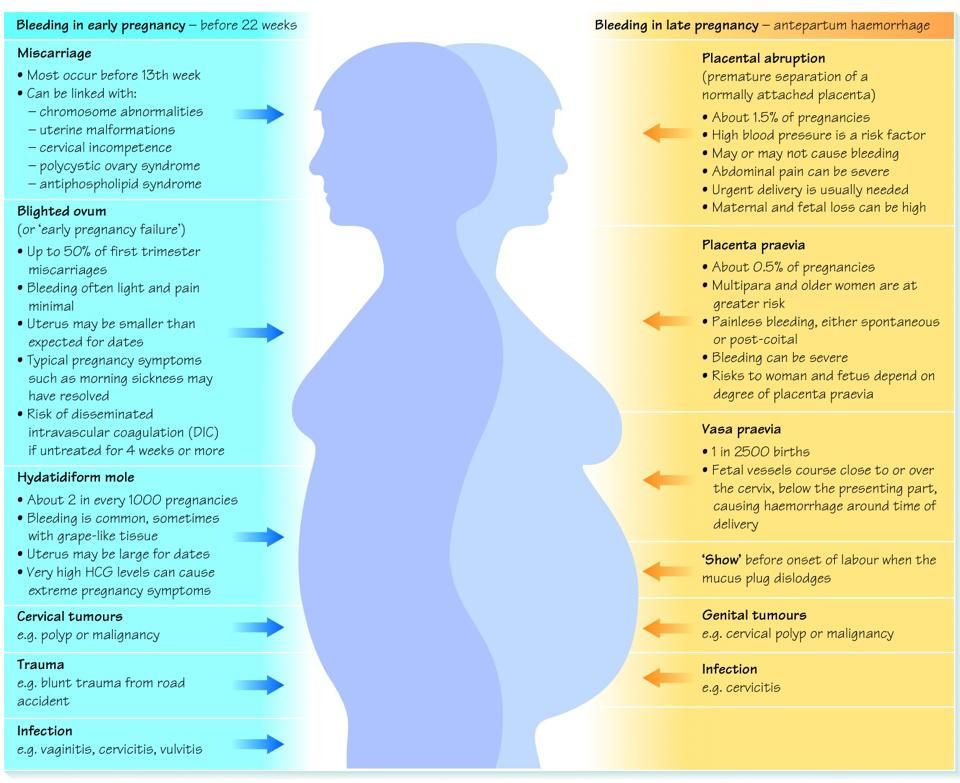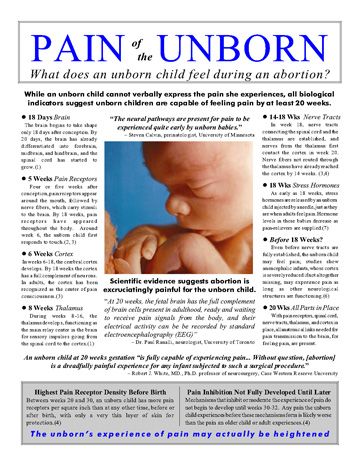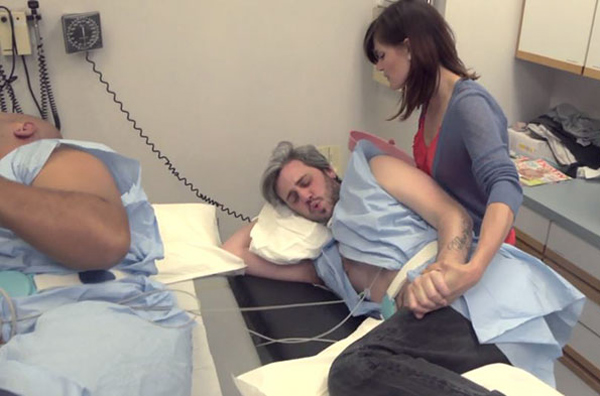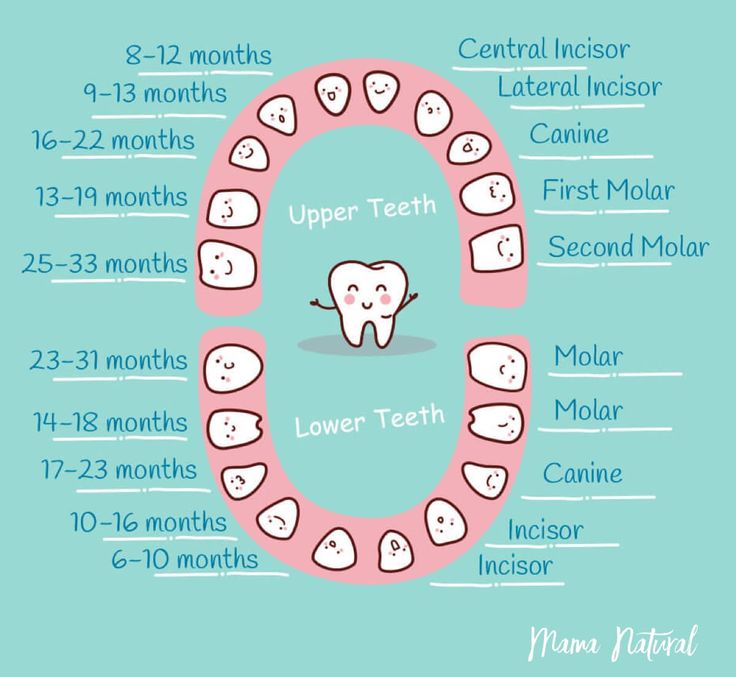Signs of miscarriage at 9 weeks pregnancy
Signs of early miscarriage: Symptoms and causes
What is a miscarriage?
Miscarriage is the loss of a pregnancy in the first 20 weeks. In medical language, the term "spontaneous abortion" is often used in place of miscarriage. When it happens in the first trimester, miscarriage is also called early pregnancy loss.
About 10 percent of known pregnancies end in miscarriage, and more than 80 percent of these losses happen before 12 weeks. The risk of miscarriage drops significantly as pregnancy progresses. In one study, researchers found a miscarriage rate of 9.4 percent at 6 weeks of pregnancy, 4.2 percent at 7 weeks, 1.5 percent at 8 weeks, 0.5 percent at 9 weeks and 0.7 percent at 10 weeks.
This doesn't include situations in which you lose a fertilized egg before a pregnancy becomes established. Studies have found that 30 to 50 percent of fertilized eggs are lost before or during the process of implantation – often so early that a woman goes on to get her period at about the expected time or up to a week late. This is called a chemical pregnancy.
Signs of miscarriage
If you have these signs of miscarriage, call your doctor or midwife right away so they can determine whether you have a problem that needs to be dealt with immediately:
- Bleeding or spotting. Vaginal spotting or bleeding is usually the first sign of miscarriage. Keep in mind, though, that up to 1 in 4 pregnant women have some bleeding or spotting (finding spots of blood on your underpants or toilet tissue) in early pregnancy, and most of these pregnancies don't end in miscarriage.
- Abdominal pain. Abdominal pain usually begins after you first have some bleeding. It may feel crampy or persistent, mild or sharp, or may feel more like low back pain or pelvic pressure.
If you have both bleeding and pain, the chances of your pregnancy continuing are much lower. It's very important to be aware that vaginal bleeding, spotting, or pain in early pregnancy can also signal an ectopic or a molar pregnancy.
Also, if your blood is Rh-negative, you may need a shot of Rh immune globulin within two or three days after you first notice bleeding, unless the baby's father is Rh-negative as well.
Some miscarriages are first suspected during a routine prenatal visit, when the doctor or midwife can't hear the baby's heartbeat or notices that your uterus isn't growing as it should be. (Often the embryo or fetus stops developing a few weeks before you have symptoms like bleeding or cramping.)
If your practitioner suspects that you've had a miscarriage, they'll order an ultrasound to see what's going on in your uterus. They may also do a blood test.
What causes miscarriage?
There are a lot of myths about what causes miscarriage. But things like stress, exercising, having sex, and having used birth control pills before getting pregnant don't cause miscarriage. Neither does morning sickness, a fall, or a blow to the stomach. Don't blame yourself. Miscarriage usually happens because the fertilized embryo can't develop normally.
Between 50 and 70 percent of first-trimester miscarriages are thought to be random events caused by chromosomal abnormalities in the fertilized embryo. Most often, this means that the egg or sperm had the wrong number of chromosomes.
Sometimes a miscarriage is caused by problems that occur during the delicate process of early development. This would include an egg that doesn't implant properly in the uterus or an embryo with structural defects that prevent it from developing.
Since most healthcare practitioners won't do a full-scale workup of a healthy woman after a single miscarriage, it's usually impossible to tell why the pregnancy was lost. And even when a detailed evaluation is performed – after you've had two or three consecutive miscarriages, for instance – the cause still remains unknown half the time.
When the fertilized egg has chromosomal problems, you may end up with what's sometimes called a blighted ovum (now usually referred to in medical circles as an early pregnancy loss or missed abortion). In this case, the fertilized embryo implants in the uterus and the placenta and gestational sac begin to develop, but the resulting embryo either stops developing very early or doesn't form at all.
In this case, the fertilized embryo implants in the uterus and the placenta and gestational sac begin to develop, but the resulting embryo either stops developing very early or doesn't form at all.
Because the placenta begins to secrete hormones, you'll get a positive pregnancy test and may have early pregnancy symptoms, but an ultrasound will show an empty gestational sac. In other cases, the embryo does develop for a little while but has abnormalities that make survival impossible, and development stops before the heart starts beating.
Risk factors for miscarriage
Though any woman can miscarry, some are more likely to miscarry than others. Here are some risk factors:
- Age: Older women are more likely to conceive a baby with a chromosomal abnormality and to miscarry as a result. In fact, 40-year-olds are about twice as likely to miscarry as 20-year-olds. Your risk of miscarriage also rises with each child you bear.
- A history of miscarriages: Women who have had two or more miscarriages in a row are more likely than other women to miscarry again.

- Chronic diseases or disorders: Poorly controlled diabetes, autoimmune disorders (such as antiphospholipid syndrome or lupus), and hormonal disorders (such as polycystic ovary syndrome) are some of the conditions that could increase the risk of miscarriage.
- Uterine or cervical problems: Having certain congenital uterine abnormalities, severe uterine adhesions (bands of scar tissue), or a weak or abnormally short cervix (known as cervical insufficiency) up the odds for a miscarriage. The link between uterine fibroids (a common, benign growth) and miscarriage is controversial, but most fibroids don't cause problems.
- A history of birth defects or genetic problems: If you, your partner, or family members have a genetic abnormality, have had one identified in a previous pregnancy, or have given birth to a child with a birth defect, you're at higher risk for miscarriage.
- Infections: Research has shown a somewhat higher risk for miscarriage if you have listeria, mumps, rubella, measles, cytomegalovirus, parvovirus, gonorrhea, HIV, and certain other infections.
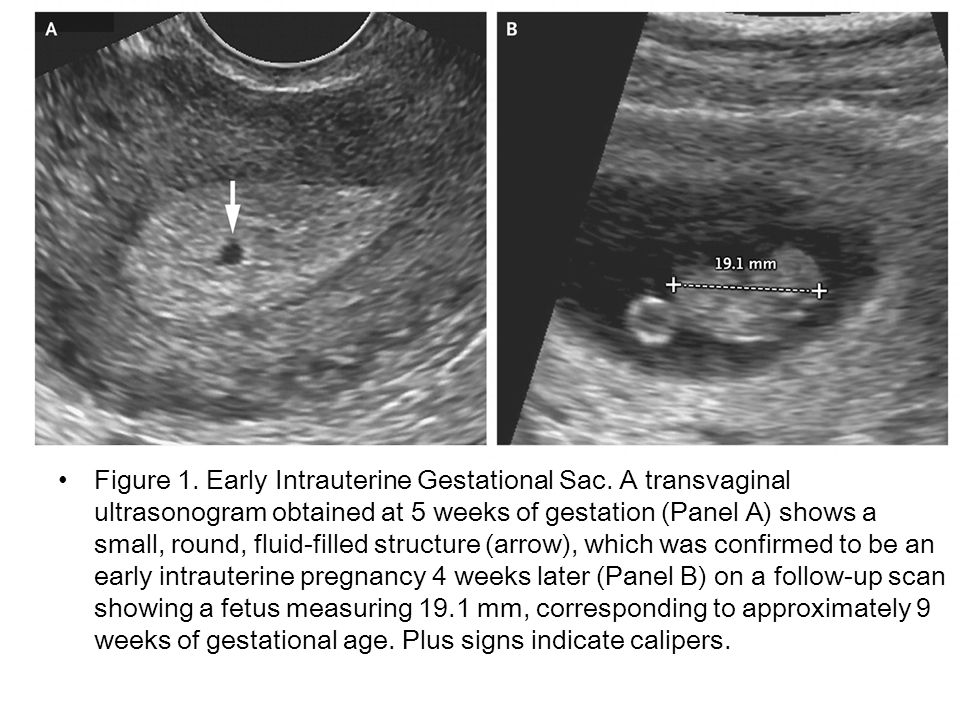
- Smoking, drinking, and using drugs: Smoking, drinking alcohol, and using drugs like cocaine and MDMA (ecstasy) during pregnancy can all increase your risk for miscarriage. Some studies show that high levels of caffeine consumption are linked to an increased risk of miscarriage.
- Medications: Some medications have been linked to increased risk of miscarriage, so it's important to ask your caregiver about the safety of any medications you're taking, even while you're trying to conceive. This goes for prescription and over-the-counter drugs, including nonsteroidal anti-inflammatory drugs (NSAIDs) like ibuprofen and aspirin.
- Environmental toxins: Environmental factors that might increase your risk include lead; arsenic; some chemicals, like formaldehyde, benzene, and ethylene oxide; and large doses of radiation or anesthetic gases.
- Paternal factors: Little is known about how the father's condition contributes to a couple's risk for miscarriage, though the risk does rise with the father's age.
 Researchers are studying the extent to which sperm could be damaged by environmental toxins but still manage to fertilize an egg. Some studies have found a greater risk of miscarriage when the father has been exposed to mercury, lead, and some industrial chemicals and pesticides.
Researchers are studying the extent to which sperm could be damaged by environmental toxins but still manage to fertilize an egg. Some studies have found a greater risk of miscarriage when the father has been exposed to mercury, lead, and some industrial chemicals and pesticides. - Obesity: Some studies show a link between obesity and miscarriage.
- Diagnostic procedures: There's a small increased risk of miscarriage after chorionic villus sampling and amniocentesis, which may be performed for diagnostic genetic testing.
- Short time between pregnancies: Your risk of miscarriage is higher if you get pregnant within three months after giving birth.
If you think you're having a miscarriage
Call your doctor or midwife immediately if you ever notice unusual symptoms such as bleeding or cramping during pregnancy. Your practitioner will examine you to see if the bleeding is coming from your cervix and check your uterus. They may also do a blood test to check for the pregnancy hormone hCG and repeat it in two to three days to see if your levels are rising as they should be.
They may also do a blood test to check for the pregnancy hormone hCG and repeat it in two to three days to see if your levels are rising as they should be.
If you're having bleeding or cramping and your practitioner has even the slightest suspicion that you have an ectopic pregnancy, you'll have an ultrasound right away. If there's no sign of a problem but you continue to spot, you'll have another ultrasound in a couple of weeks.
At this point, if the sonographer sees an embryo with a normal heartbeat, you have a viable pregnancy and your risk of miscarrying is now much lower, but you'll need to have another ultrasound later if you continue to bleed. If the sonographer determines that the embryo is the appropriate size but there's no heartbeat, it may mean that the embryo didn't form or didn't survive.
If you're in your second trimester and an ultrasound shows your cervix is shortening or opening, your doctor may decide to perform a procedure called cerclage, in which they stitch your cervix closed in an attempt to prevent miscarriage or premature delivery. (This is assuming your baby appears normal on the ultrasound and you have no signs of an intrauterine infection.) Cerclage isn't without risk, and you may not meet the criteria for it.
(This is assuming your baby appears normal on the ultrasound and you have no signs of an intrauterine infection.) Cerclage isn't without risk, and you may not meet the criteria for it.
Your caregiver may suggest that you not have sex while you're having bleeding or cramping. Sex doesn't cause miscarriage, but it's a good idea to abstain while you're having these symptoms.
Treatment for miscarriage
If you're miscarrying, discuss the pros and cons of treatment options with your caregiver. If there's no threat to your health, you may choose to wait and let the tissue pass on its own. (More than half of women spontaneously miscarry within a week of finding out that the pregnancy is no longer viable.)
If you wait for the tissue to pass on its own, you may have light bleeding and cramping for a few weeks. You can wear sanitary pads but no tampons during this time and take acetaminophen for the pain. The bleeding and cramping will likely get worse shortly before you pass the "products of conception" – that is, the placenta and the embryonic or fetal tissue, which will look grayish and may include blood clots.
Or you may decide to have a surgical procedure to remove the tissue. This is done by suction dilation and curettage (D&C).
You'll definitely need to have the tissue removed right away if you have any problems that make it unsafe to wait, such as significant bleeding or signs of infection. And your practitioner may recommend the procedure if this is your second or third miscarriage in a row, so the tissue can be tested for a genetic cause.
If you choose to have suction dilation and curettage, the procedure doesn't usually require an overnight stay unless you have complications. As with any surgery, you'll need to arrive with an empty stomach – no food or drink since the night before.
The doctor will insert a speculum into your vagina, clean your cervix and vagina with an antiseptic solution, and dilate your cervix with narrow metal rods (unless your cervix is already dilated from having passed some tissue). In most cases, you'll be given sedation through an IV and a local anesthetic to numb your cervix.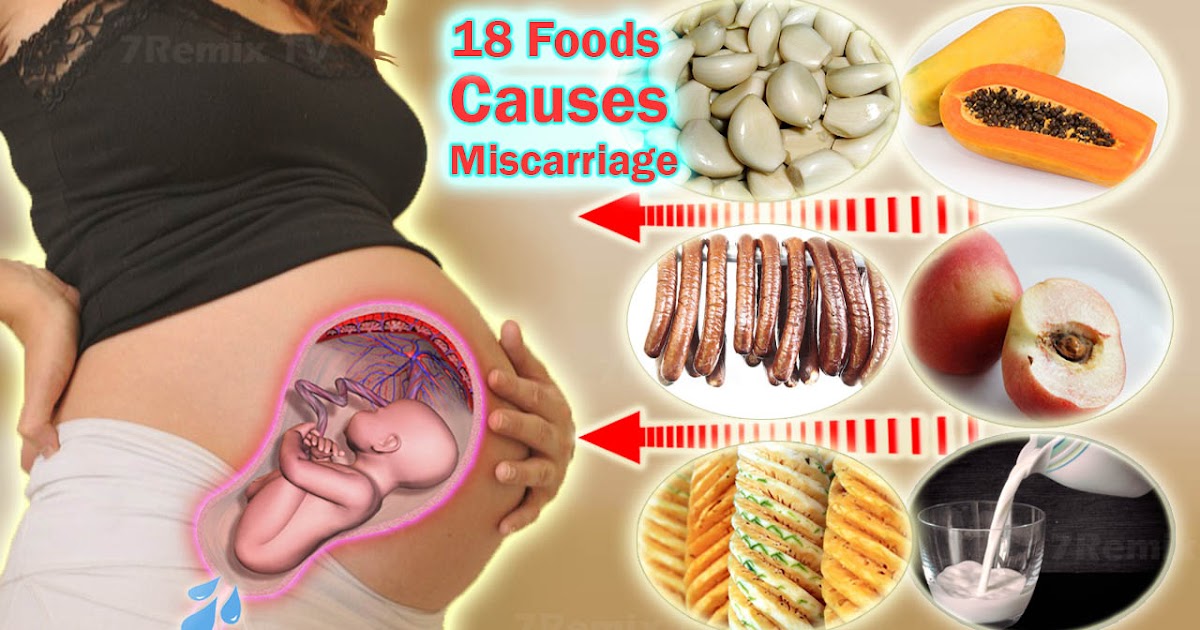
Then the doctor will pass a hollow plastic tube through your cervix and suction out the tissue from your uterus. Finally, they'll use a spoon-shaped instrument called a curette to gently scrape any remaining tissue from the walls of your uterus. The whole procedure may take about 15 to 20 minutes, though the tissue removal itself takes less than ten minutes.
Finally, if your blood is Rh-negative, you'll receive a shot of Rh immune globulin unless the baby's father is Rh-negative, too.
What happens after a miscarriage
Whether you pass the tissue on your own or have it removed, you'll have mild menstrual-like cramps afterward for up to a day or so and light bleeding for a week or two. Use pads instead of tampons and take ibuprofen or acetaminophen for the cramps. Avoid sex, swimming, and using vaginal medications for at least a couple of weeks and until your bleeding has stopped.
If you begin to bleed heavily (soaking a sanitary pad in an hour), have any signs of infection (such as fever, achiness, or foul-smelling vaginal discharge), or feel excessive pain, call your practitioner immediately or go to the emergency room. If your bleeding is heavy and you begin to feel weak, dizzy, or lightheaded, you may be going into shock. In this case, call 911 right away – don't wait to hear from your caregiver, and don't drive yourself to the ER.
If your bleeding is heavy and you begin to feel weak, dizzy, or lightheaded, you may be going into shock. In this case, call 911 right away – don't wait to hear from your caregiver, and don't drive yourself to the ER.
The chance of having another miscarriage
It's understandable to be worried about the possibility of another miscarriage, but fertility experts don't consider a single early pregnancy loss to be a sign that there's anything wrong with you or your partner.
Some practitioners will order special blood and genetic tests to try to find out what's going on after two miscarriages in a row, particularly if you're 35 or older or you have certain medical conditions. Others will wait until you've had three consecutive losses. In certain situations, such as if you had a second-trimester miscarriage or an early-third-trimester premature birth from a weakened cervix, you might be referred to a high-risk specialist after a single loss so your pregnancy can be carefully managed.
Conceiving again after a miscarriage
You may have to wait a bit. Whether you miscarry spontaneously, with the help of medication, or have the tissue removed, you'll generally get your period again in four to six weeks.
You can start trying to conceive again after this period, but you may want to wait longer so that you have more time to recover physically and emotionally. (You'll need to use birth control to prevent conception during this time, because you may ovulate as early as two weeks after you miscarry.)
How to cope after a miscarriage
Though you may be physically ready to get pregnant again, you may not feel ready emotionally. Some women cope best by turning their attention toward trying for a new pregnancy as soon as possible. Others find that months or more go by before they're ready to try to conceive again. Take the time to examine your feelings, and do what feels right for you and your partner. For more information see our article on coping with pregnancy loss.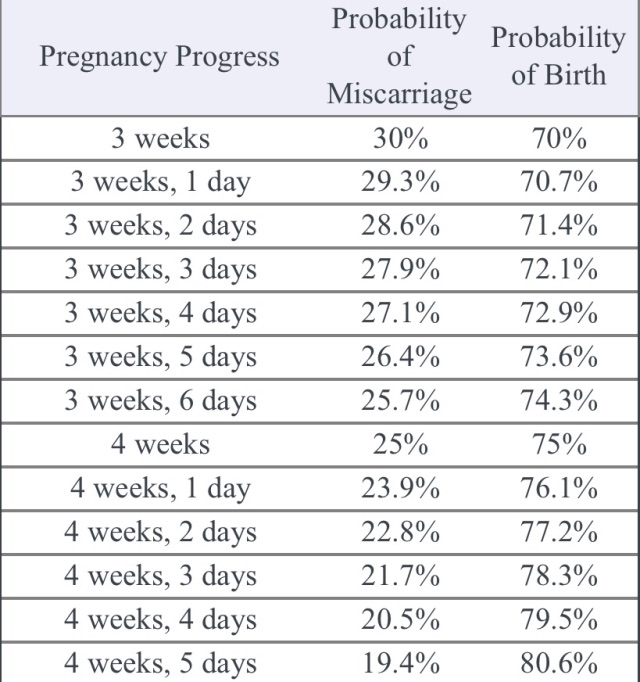
You may find help in a support group (your caregiver can refer you to one) or in our Community's Miscarriage, Stillbirth, and Infant Loss Support group.
If you're feeling overwhelmed by your sadness, call your caregiver. They can put you in touch with a therapist who can help.
If you're wondering how to explain a pregnancy loss to your child, read about how to talk to your preschooler about pregnancy loss.
Miscarriage - what you might actually see and feel
Miscarriage - what you might actually see and feel | Pregnancy Birth and Baby beginning of content7-minute read
Listen
WARNING — This article contains some graphic descriptions of what you might see during a miscarriage.
A miscarriage requires prompt medical care. If you think you are having a miscarriage, call your doctor or midwife for advice and support. Go to the Emergency Department if:
If you think you are having a miscarriage, call your doctor or midwife for advice and support. Go to the Emergency Department if:
- you are bleeding very heavily (soaking more than 2 pads per hour or passing clots larger than golf balls)
- you have severe pain in your tummy or shoulder
- you have a fever (a temperature above 38 degrees C)
- you are dizzy, fainting or feel like fainting
- you notice fluid coming from your vagina that smells bad
- you have diarrhoea or pain when you have a bowel motion (do a poo)
Miscarriage is a very unfortunate and sad outcome of pregnancy that takes a significant emotional and physical toll on a woman. It also happens more frequently than many people think. It's important to recognise that there's no right or wrong way to feel about a miscarriage.
Despite close to one in 5 pregnancies ending in miscarriage, what actually happens and what a woman needs to know and do when faced with a possible miscarriage are subjects that rarely get discussed.
This article aims to give you an idea of what happens and what a woman needs to know and do at different stages in her pregnancy.
Please call Pregnancy, Birth and Baby on 1800 882 436 if you have any concerns or wish to discuss the topic further.
What might I feel during a miscarriage?
Many women have a miscarriage early in their pregnancy without even realising it. They may just think they are having a heavy period. If this happens to you, you might have cramping, heavier bleeding than normal, pain in the tummy, pelvis or back, and feel weak. If you have started spotting, remember that this is normal in many pregnancies — but talk to your doctor or midwife to be safe and for your own peace of mind.
Later in your pregnancy, you might notice signs like cramping pain, bleeding or passing fluid and blood clots from your vagina. Depending on how many weeks pregnant you are, you may pass tissue that looks more like a fetus, or a fully-formed baby.
In some types of miscarriage, you might not have any symptoms at all — the miscarriage might not be discovered until your next ultrasound.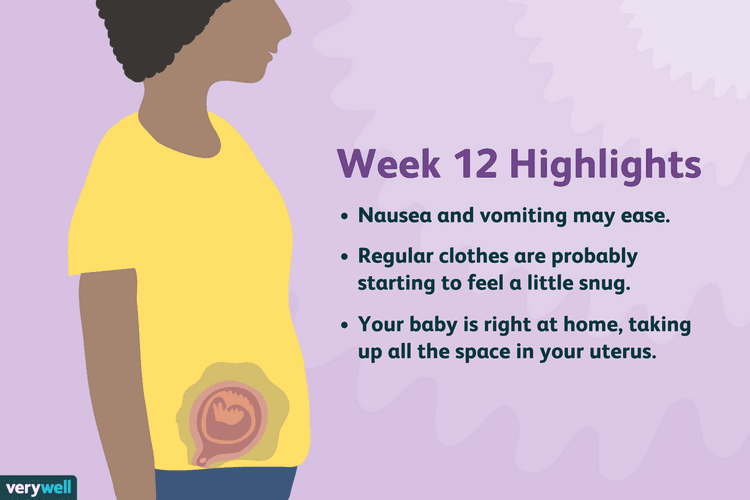 Or you might just notice your morning sickness and breast tenderness have gone.
Or you might just notice your morning sickness and breast tenderness have gone.
It is normal to feel very emotional and upset when you realise you’re having a miscarriage. It can take a while to process what is happening. Make sure you have someone with you, for support, and try to be kind to yourself.
What happens during a miscarriage?
Unfortunately, nothing can be done to stop a miscarriage once it has started. Any treatment is to prevent heavy bleeding or an infection.
Your doctor might advise you that no treatment is necessary. This is called 'expectant management', and you just wait to see what will happen. Eventually, the pregnancy tissue (the fetus or baby, pregnancy sac and placenta) will pass naturally. This can take a few days or as long as 3 to 4 weeks.
It can be very hard emotionally to wait for the miscarriage because you don’t know when it will happen. When it starts, you will notice spotting and cramping and then, fairly quickly, you will start bleeding heavily.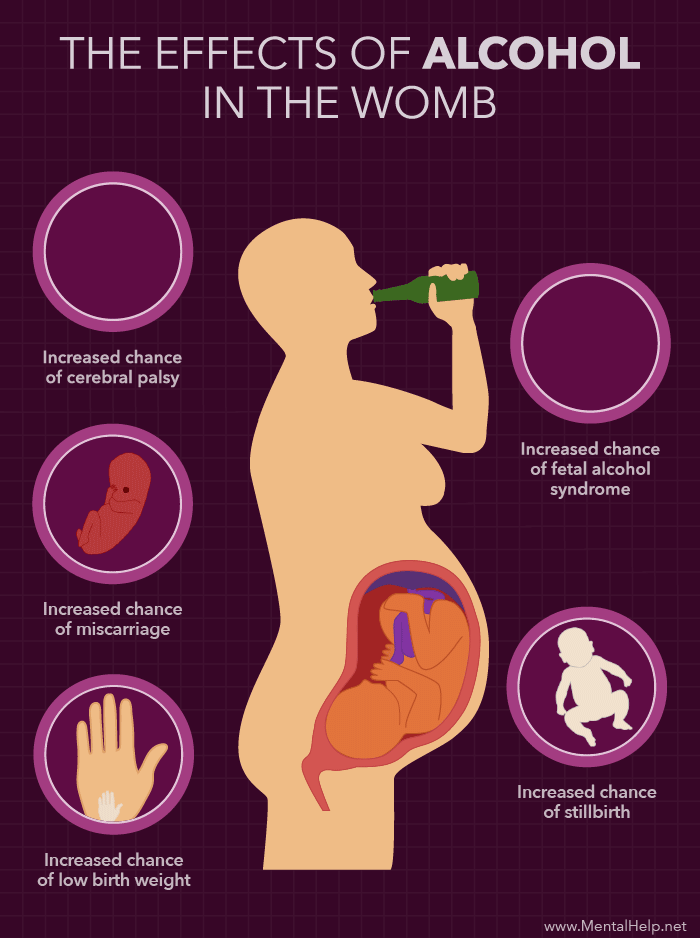 The cramps will get worse until they feel like contractions, and you will pass the pregnancy tissue.
The cramps will get worse until they feel like contractions, and you will pass the pregnancy tissue.
Some women opt to have medicine to speed up the process. In this case, the pregnancy tissue is likely to pass within a few hours.
If not all the tissue passes naturally or you have signs of infection, you may need to have a small operation called a ‘dilatation and curettage’ (D&C). You may need to wait some time for your hospital appointment. The operation only takes 5 to 10 minutes under general anaesthetic, and you will be able to go home the same day.
While you are waiting for a miscarriage to finish, it’s best to rest at home — but you can go to work if you feel up to it. Do what feels right for you. You can use paracetamol for any pain. If you are bleeding, use sanitary pads rather than tampons.
What might I see during a miscarriage?
In the first month of pregnancy, the developing embryo is the size of a grain of rice so it is very hard to see.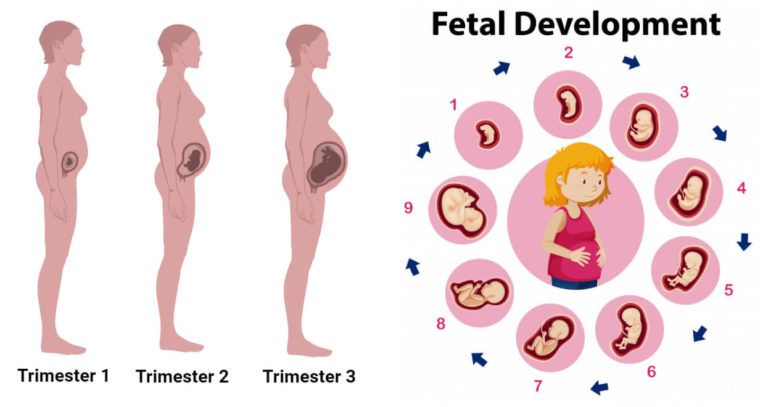 You may pass a blood clot or several clots from your vagina, and there may be some white or grey tissue in the clots. The bleeding will settle down in a few days, although it can take up to 2 weeks.
You may pass a blood clot or several clots from your vagina, and there may be some white or grey tissue in the clots. The bleeding will settle down in a few days, although it can take up to 2 weeks.
At 6 weeks
Most women can’t see anything recognisable when they have a miscarriage at this time. During the bleeding, you may see clots with a small sac filled with fluid. The embryo, which is about the size of the fingernail on your little finger, and a placenta might be seen inside the sac. You might also notice something that looks like an umbilical cord.
At 8 weeks
The tissue you pass may look dark red and shiny — some women describe it as looking like liver. You might find a sac with an embryo inside, about the size of a small bean. If you look closely, you might be able to see where the eyes, arms and legs were forming.
At 10 weeks
The clots that are passed are dark red and look like jelly. They might have what looks like a membrane inside, which is part of the placenta.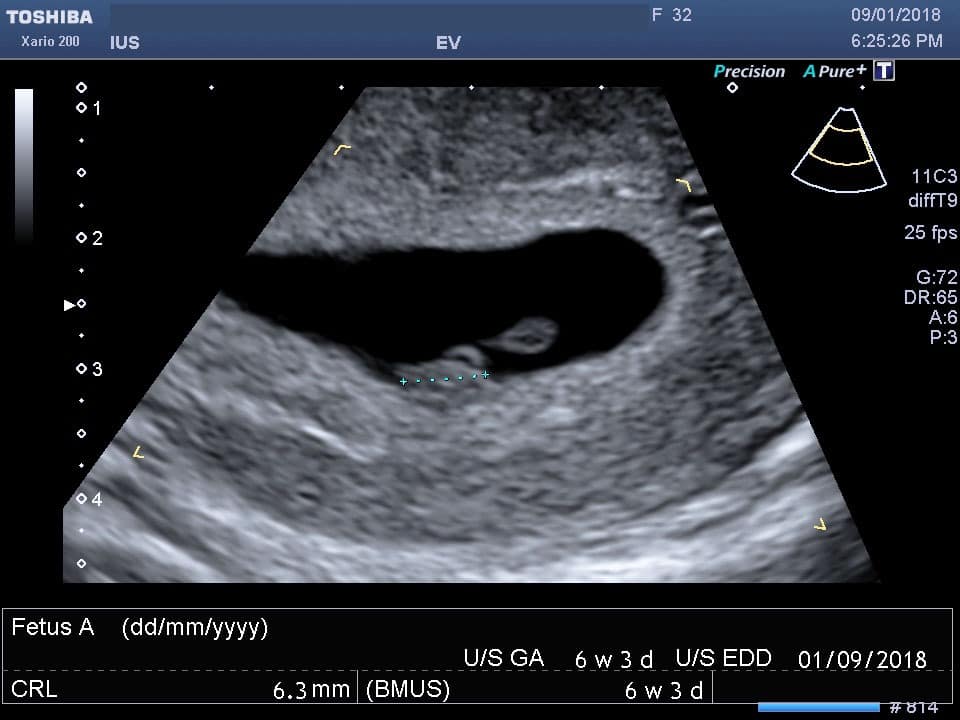 The sac will be inside one of the clots. At this time, the developing baby is usually fully formed but still tiny and difficult to see.
The sac will be inside one of the clots. At this time, the developing baby is usually fully formed but still tiny and difficult to see.
At 12 to 16 weeks
If you miscarry now, you might notice water coming out of your vagina first, followed by some bleeding and clots. The fetus will be tiny and fully formed. If you see the baby it might be outside the sac by now. It might also be attached to the umbilical cord and the placenta.
From 16 to 20 weeks
This is often called a 'late miscarriage'. You might pass large shiny red clots that look like liver as well as other pieces of tissue that look and feel like membrane. It might be painful and feel just like labour, and you might need pain relief in hospital. Your baby will be fully formed and can fit on the palm of your hand.
After the miscarriage
You will have some cramping pain and bleeding after the miscarriage, similar to a period. It will gradually get lighter and will usually stop within 2 weeks.
The signs of your pregnancy, such as nausea and tender breasts, will fade in the days after the miscarriage. If you had a late miscarriage, your breasts might produce some milk. You will probably have your next period in 4 to 6 weeks.
Remember, it’ll be normal to feel very emotional and upset at this time.
More information
Read more about miscarriage:
- What is a miscarriage?
- What happens after a miscarriage
- Emotional support after miscarriage
- Fathers and miscarriage
- Experiencing a pregnancy loss
Speak to a maternal child health nurse
Call Pregnancy, Birth and Baby to speak to a maternal child health nurse on 1800 882 436 or video call. Available 7am to midnight (AET), 7 days a week.
Sources:
KidsHealth (Understanding miscarriage), The Royal Women's Hospital (Treating miscarriage), Pink Elephants Support Network (Sorry for your loss), Women’s and Children’s Health Network (Miscarriage), Patient.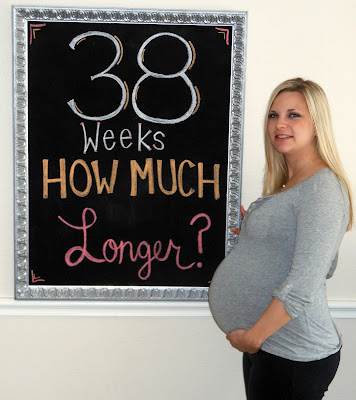 com (Miscarriage and bleeding in early pregnancy), Pink Elephants Support Network (Treatments and procedures), New Kids Center (Blood Clots of Miscarriage: What It Looks Like?), Babycenter Australia (Understanding late miscarriage)
com (Miscarriage and bleeding in early pregnancy), Pink Elephants Support Network (Treatments and procedures), New Kids Center (Blood Clots of Miscarriage: What It Looks Like?), Babycenter Australia (Understanding late miscarriage) Learn more here about the development and quality assurance of healthdirect content.
Last reviewed: March 2022
Back To Top
Related pages
- Fathers and miscarriage
- Emotional support after miscarriage
- What happens after miscarriage
- Miscarriage
- Experiencing a pregnancy loss
Need more information?
Miscarriage
Miscarriage Despite being common and widespread, miscarriage can be a heartbreaking experience – with up to one in five pregnancies ending before week 20
Read more on Gidget Foundation Australia website
Miscarriage
A miscarriage is the loss of a baby, usually during the first three months or first trimester of pregnancy.
Read more on Pregnancy, Birth & Baby website
Fathers and miscarriage
A miscarriage can be a time of great sadness for the father as well as the mother.
Read more on Pregnancy, Birth & Baby website
Emotional support after miscarriage
It is important to know that there is no right or wrong way to feel after experiencing a miscarriage.
Read more on Pregnancy, Birth & Baby website
What happens after miscarriage
There are a number of things you may need to consider after a miscarriage.
Read more on Pregnancy, Birth & Baby website
Miscarriage | SANDS - MISCARRIAGE STILLBIRTH NEWBORN DEATH SUPPORT
Helping you understand the complex range of emotions you may experience during fertility treatment or after miscarriage or early pregnancy loss
Read more on Sands Australia website
Miscarriage: a guide for men | Raising Children Network
This Dads Guide to Pregnancy covers miscarriage, the grief men might experience after miscarriage, and how to support partners after pregnancy loss.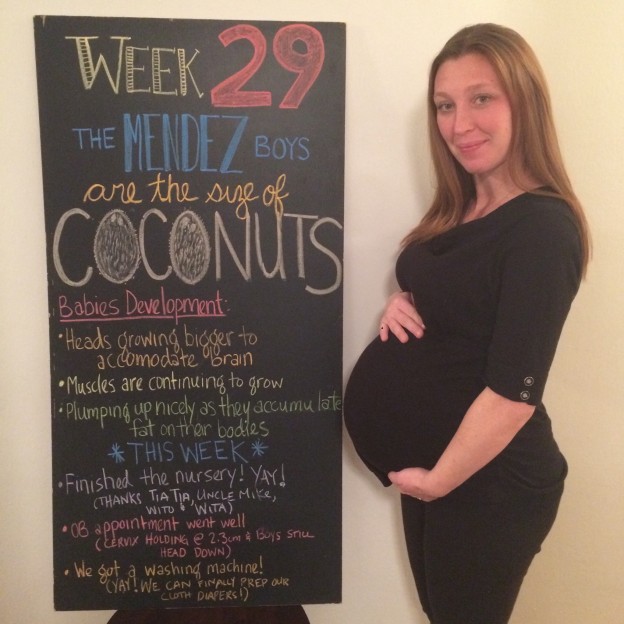
Read more on raisingchildren.net.au website
The Pink Elephants Support Network - Medical Options for Recurrent Miscarriage
In some cases, a medical reason for miscarriage or recurrent miscarriage can be found through testing
Read more on Pink Elephants Support Network website
New research on vitamin B3 and miscarriages
Pregnant women are being warned not to start taking vitamin B3 supplements, despite a recent study that suggests it might reduce the risk of miscarriages and birth defects.
Read more on Pregnancy, Birth & Baby website
Pregnancy: miscarriage & stillbirth | Raising Children Network
Have you experienced a miscarriage or stillbirth? Find articles and videos about coping with the grief of losing a pregnancy or having a stillbirth.
Read more on raisingchildren.net.au website
Disclaimer
Pregnancy, Birth and Baby is not responsible for the content and advertising on the external website you are now entering.
OKNeed further advice or guidance from our maternal child health nurses?
1800 882 436
Video call
- Contact us
- About us
- A-Z topics
- Symptom Checker
- Service Finder
- Linking to us
- Information partners
- Terms of use
- Privacy
Pregnancy, Birth and Baby is funded by the Australian Government and operated by Healthdirect Australia.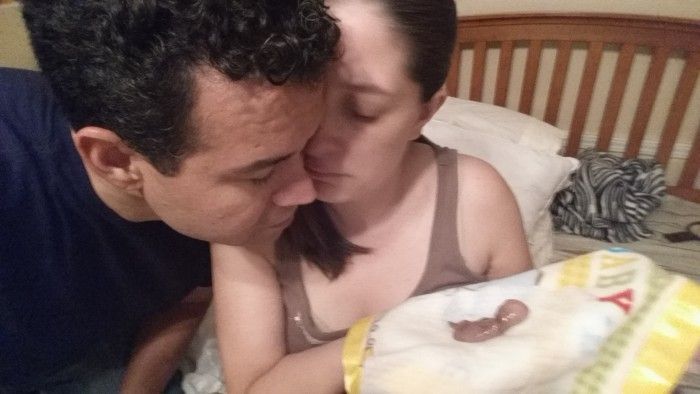
Pregnancy, Birth and Baby is provided on behalf of the Department of Health
Pregnancy, Birth and Baby’s information and advice are developed and managed within a rigorous clinical governance framework. This website is certified by the Health On The Net (HON) foundation, the standard for trustworthy health information.
This site is protected by reCAPTCHA and the Google Privacy Policy and Terms of Service apply.
This information is for your general information and use only and is not intended to be used as medical advice and should not be used to diagnose, treat, cure or prevent any medical condition, nor should it be used for therapeutic purposes.
The information is not a substitute for independent professional advice and should not be used as an alternative to professional health care. If you have a particular medical problem, please consult a healthcare professional.
Except as permitted under the Copyright Act 1968, this publication or any part of it may not be reproduced, altered, adapted, stored and/or distributed in any form or by any means without the prior written permission of Healthdirect Australia.
Support this browser is being discontinued for Pregnancy, Birth and Baby
Support for this browser is being discontinued for this site
- Internet Explorer 11 and lower
We currently support Microsoft Edge, Chrome, Firefox and Safari. For more information, please visit the links below:
- Chrome by Google
- Firefox by Mozilla
- Microsoft Edge
- Safari by Apple
You are welcome to continue browsing this site with this browser. Some features, tools or interaction may not work correctly.
Early miscarriage - symptoms and how to prevent it
The term "early miscarriage" refers to a spontaneous abortion that occurs in the first 6-8 weeks of pregnancy. It can occur before 20 weeks of pregnancy for reasons related to the natural states of the fair sex. According to statistics, the logical outcome of every fifth pregnancy is a miscarriage. However, quite often a woman does not even know that she was pregnant by the time the fetus is rejected by the body.
However, quite often a woman does not even know that she was pregnant by the time the fetus is rejected by the body.
In addition, a curious pattern was revealed: more often than a natural one, a pregnancy induced artificially ends in a miscarriage. For example, in vitro fertilization, unfortunately, does not always lead to a successful pregnancy and the birth of a baby on time.
Why can an early miscarriage occur?
Here are the most common causes, each of which significantly increases the risk of miscarriage:
- the expectant mother has certain infectious diseases, as well as STDs;
- intoxication of a woman's body for various reasons, including as a result of her living in an ecologically unfavorable region;
- all kinds of metabolic disorders in the body;
- hormonal disruptions, including those caused by a malfunction of the thyroid gland;
- various neoplasms in the uterus and others, as well as the cervix, pathologies;
- maintenance by the future mother of a life far from a healthy lifestyle.
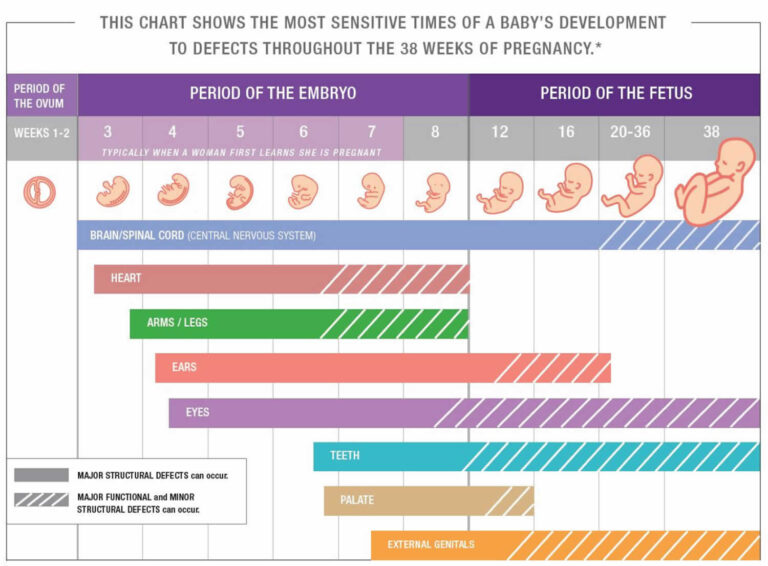 May include drinking alcohol, smoking, taking psychotropic and narcotic drugs, as well as malnutrition;
May include drinking alcohol, smoking, taking psychotropic and narcotic drugs, as well as malnutrition; - obesity;
- immune status disorders;
- cardiac diseases;
- diabetes mellitus;
- too early for pregnancy or, conversely, the patient's overly mature age at times increases the risk of miscarriage;
- all kinds of pathologies of chromosomes and genes;
- prolonged exposure to stress or severe psycho-emotional trauma in a woman.
The timing of a miscarriage may depend, among other things, on the patient's genetic predisposition to miscarriage. Finally, often its specific cause remains unexplained to the end.
Symptoms of miscarriage
A pregnant woman should urgently seek medical help if she has the following warning signs:
- bleeding from the vagina;
- spotting discharge from the genital tract. They can have both light pink and intense red or brownish tint;
- convulsions;
- severe pain in the lumbar region;
- abdominal pain, etc.

All of the above signs can be symptoms of a miscarriage. Timely provision of qualified medical care is the key to maintaining pregnancy.
Life after miscarriage
If a woman could not bear the pregnancy - an early miscarriage crossed out all her plans - then she needs to calm down and take all measures to prevent such complications in the future. Usually obstetricians-gynecologists recommend planning a new pregnancy no earlier than six months after a miscarriage. During this time, a woman needs to be examined and find out if she has any pathology in her body that could lead to an abortion. It can be various STDs and infectious diseases. In the presence of chronic diseases that can provoke spontaneous abortion, it is necessary to throw all your efforts into their treatment.
Gynecologists of the corresponding department of our private clinic in Ryazan will help you find out what could have caused the miscarriage, as well as make recommendations on how to prepare for pregnancy.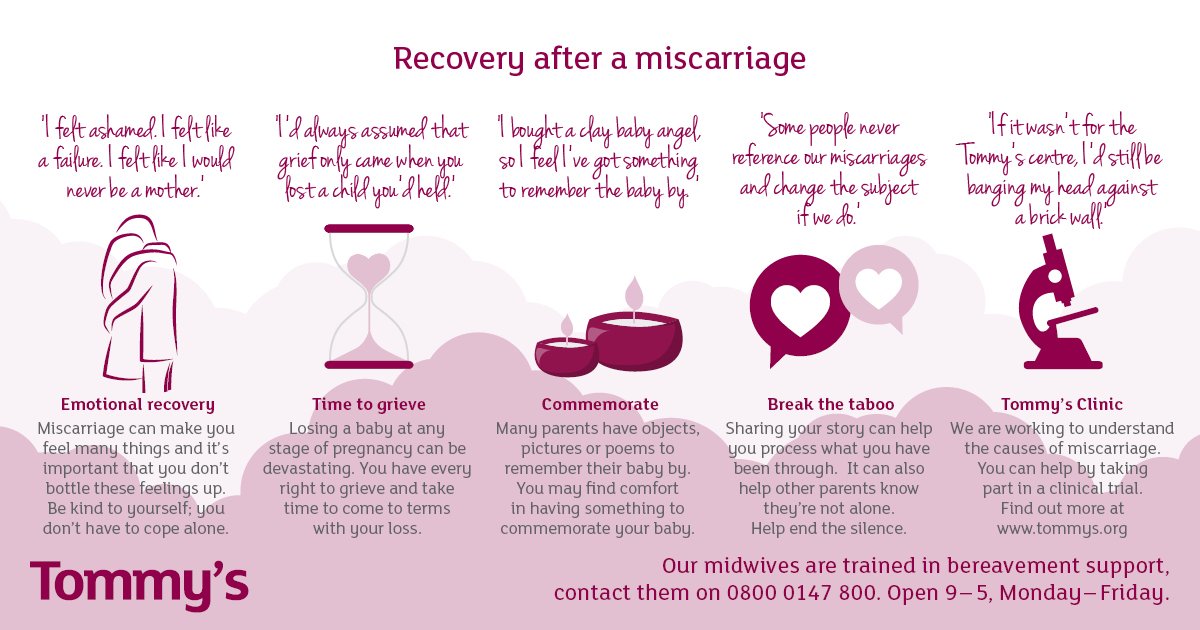 They usually include a set of physical exercises suitable for a woman, a diet rich in everything necessary for bearing a healthy baby, no stress, and measures to maintain a normal body mass index. Can't recover or get pregnant after a miscarriage? Contact "ON CLINIC in Ryazan" - here you will definitely be helped!
They usually include a set of physical exercises suitable for a woman, a diet rich in everything necessary for bearing a healthy baby, no stress, and measures to maintain a normal body mass index. Can't recover or get pregnant after a miscarriage? Contact "ON CLINIC in Ryazan" - here you will definitely be helped!
miscarriage, symptoms - Health Clinic 365 G. Yekaterinburg
Causes of miscarriage
Questions to the doctor about miscarriages
Diagnostics of miscarriage
Treatment and prevention of miscarriage
Pereki - this is spontaneous termination of pregnancy up to 20 weeks. According to statistics, 10 to 20% of all pregnancies end in miscarriage. However, the real numbers could be much higher, as a large number of miscarriages happen very early, and women are not even aware of their pregnancy. Most miscarriages happen due to abnormal development of the fetus.
Miscarriage is quite common, but this fact does not make things any easier. It is always difficult to cope with the realization that there was a pregnancy, but no child. Try to deal with the situation psychologically and understand what could be causing the miscarriage, what increases the risk of it, and what type of treatment might be needed.
It is always difficult to cope with the realization that there was a pregnancy, but no child. Try to deal with the situation psychologically and understand what could be causing the miscarriage, what increases the risk of it, and what type of treatment might be needed.
Symptoms of miscarriage .
Most miscarriages occur before 12 weeks. Signs and symptoms of a miscarriage include:
- Vaginal bleeding or spotting (although quite common in early pregnancy)
- Pain or cramps in the abdomen or lower back
- Fluid vaginal discharge or tissue fragments
It is important to consider the fact that in early pregnancy, spotting or vaginal bleeding is quite common. In most cases, women who experience light bleeding during the first three months have an uneventful pregnancy thereafter. In some cases, even with heavy bleeding, the pregnancy does not end in a miscarriage.
Some women who have a miscarriage develop an infection in the uterus.